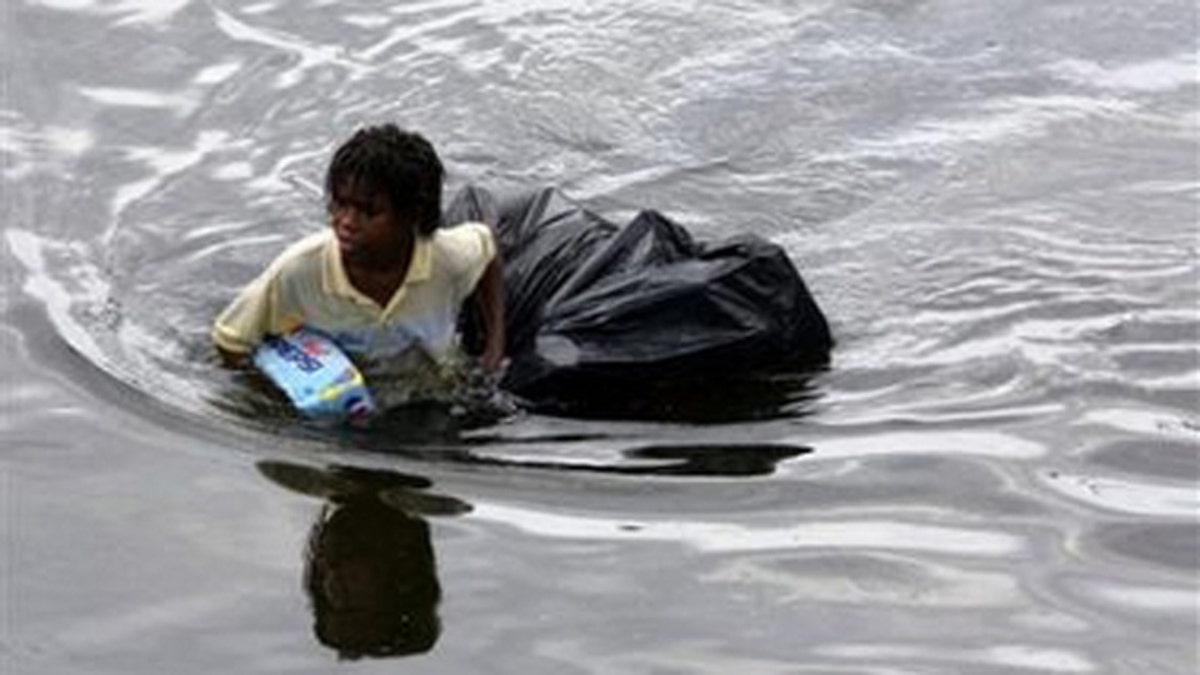
(AP)
Hurricane season is upon us for another year, and NOAA has come out with their predictions of below average season. To be honest, I’m not a big fan of these early predictions, because I feel it might make people less inclined to “prepare” for something that experts say has a lower chance of happening.
And, for the last decade the U.S. has been relatively “lucky” when it comes to big, destructive hurricanes. We’ve certainly had memorable storms like Hurricane Sandy back in 2012 that caused incredible damage and loss of life in the Northeast, but in terms of major hurricanes (Category 3 or higher) it’s been 10 years something that powerful has hit our coastline.
Since then, millions of people have moved to possible hurricane prone neighborhoods having never experienced what it’s like to go through a weather major weather event. Would they know what to do? How to prepare? What their evacuation plan would be?
According to a recent study, when it comes to hurricanes, many people still ignore evacuation notices and ride the storm out.
When it comes to hurricanes, many people still ignore evacuation notices and ride the storm out.
Jennifer Marlon, a researcher at Yale University surveyed more than 1,100 coastal residents in Connecticut.
The biggest group surveyed (27 percent) said they are “reluctant” to leave their homes if a hurricane is approaching unless they are directly ordered.
Meanwhile, 22 percent said they think it’s safer to stay at home than leave. Mainly because they want to protect their property and are afraid they can’t return quickly after the storm passes.
Hurricane Katrina came ashore destroying parts of the Gulf Coast, taking over 2,000 lives and leaving 100 of thousands homeless ten years ago this August. It breached over 50 levees that were built to protect the city of New Orleans. Many residents chose to ride out the storm despite the dire warnings myself and other forecasters issued.
That’s why it’s important for me, a meteorologist whose job it is to inform people of the possibility for storms, to remind people why we need to prepare in advance.
In my latest children’s book "Freddy the Frogcaster and the Huge Hurricane," Freddy sees that his lilypad is in danger of being hit by a hurricane, so he does everything he can to warn his friends and neighbors to be safe and get a plan of action together beforehand. Even if that means leaving their homes.
According to the National Association of School Psychologists' website experiencing a dangerous storm can be very traumatic for children.
Most families do recover from natural disasters over time, with the support of family, friends and organizations. The length of recovery depends on how frightening or close to the event the child was – whether they had to flee their home, and the extent of the damage and loss.
I hope by writing these books, kids can understand why storms happen and what they can do with their parents to get ready.
If we do things together to prepare before the storm, and explain why we’re building an emergency kit, or getting our escape route planned out, this can help take some of the scare out of a potentially life-changing weather event.
And, I’m happy to report weather forecasting has gotten better in the last decade, and that means more advance warning to prepare for the upcoming storm. But, as my friend Max Mayfield, the former National Hurricane Center director says, “It's not always about the numbers. It just takes one hurricane over your community to make it a bad season.”
That’s why it’s important to get a plan of action together today so that we’re not left in the dark and in possible danger once the storm moves in.
